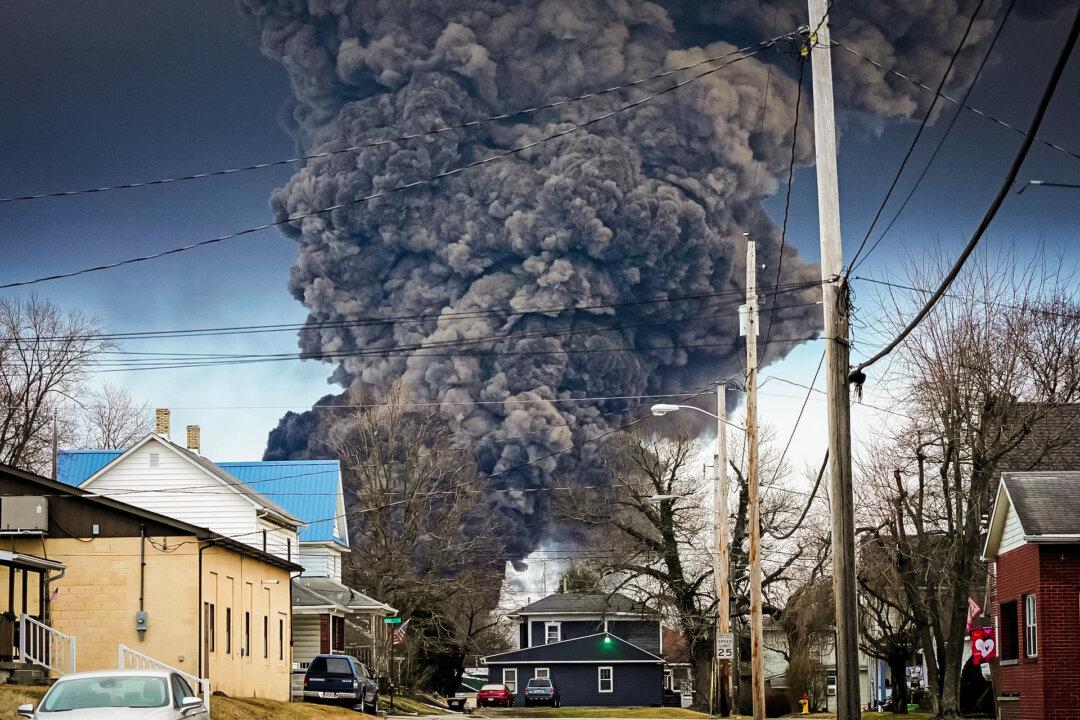Accidents involving the toxic chemical vinyl chloride, which was spilled from a train wreck in the town of East Palestine, Ohio last year, have been occurring frequently over the past 14 years, according to a new report.
The report was published by Earthjustice and the nonprofit Beyond Plastics on March 26 as part of efforts to push the Environmental Protection Agency (EPA) to consider banning the chemical.




